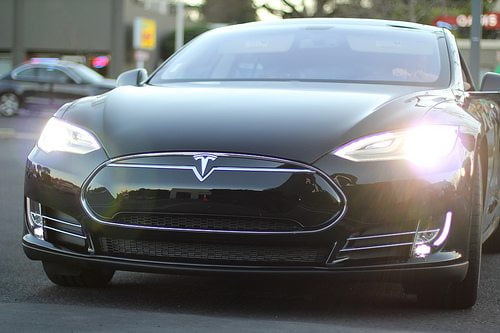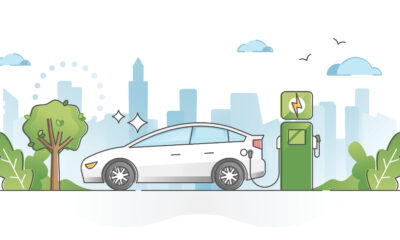

Invest
Tesla shares soar as Morgan Stanley predicts carmaker will ‘disrupt’ energy storage sector
Shares in Tesla have hit a record high, after investment bank Morgan Stanley more than doubled its projected price for the stock. The move suggests that the electric carmaker could be set to disrupt the auto and energy industries.
Shares advanced by 13.9% to $248 (£148) by the close of trading in New York on Tuesday, after Morgan Stanley projected a 12-month price target of $320 (£191). The company’s market valuation is now $30.4 billion (£18.2), more than half that of General Motors’ or Ford’s – America’s biggest automakers.
The latest boost to America’s youngest publicly traded automaker’s meteoric rise – just a year ago its shares closed at $38.45 (£23.09) – followed the announcement from founder and CEO Elon Musk that the company is going to construct its own lithium ion battery “gigafactory”.
The new factory will allow the company to lower costs by consolidating the supply chain. It will also solve its main bottleneck issue – the shortage of battery cells – as production and sales increase.
In a letter to shareholders, Tesla said, “With this facility, we fell highly confident of being able to create a compelling and affordable electric car in approximately three years.”
In light of these plans, Morgan Stanley analyst Adam Jonas said the firm no longer sees Tesla as just a niche premium auto manufacturer.
“Tesla’s quest to disrupt a trillion dollar car industry offers an adjacent opportunity to disrupt a trillion dollar electric utility industry. If it can be a leader in commercialising battery packs, investors may never look at Tesla the same way again,” he wrote.
‘‘If Tesla can become the world’s low-cost producer in energy storage, we see significant optionality for Tesla to disrupt adjacent industries.”
Jonas added that the proposed scale of Tesla’s battery production – the plant is predicted to be able to make more than 1 billion cells a year – has the potential to disrupt the US energy storage business and the national electrical grid.
He also argued that Tesla’s success in the auto sector will gather momentum, forecasting that the company will reach 1m vehicle sales by 2027.
Tesla currently produces only one vehicle – the Model S sedan – of which it expects to sell 35,000 this year. However, the company’s success comes at a time when many analysts are seeing evidence of a trend of electrification in transport, as sustainability becomes a more prominent concern for manufacturers and investors.
Speaking to Blue & Green Tomorrow earlier this month, Hyewon Kong, a senior analyst at leading sustainable investor WHEB, observed, “For the first time, every single one of the major auto manufacturers displayed at least one hybrid or electric model at the recent auto shows and there are new electric models arriving almost every month.”
Though WHEB does not invest in Tesla, its flagship WHEB Sustainability fund does hold stocks in a number of companies leading the way in sustainable transport.
Kong said that one company WHEB does invest in – the material technology group Umicore, which provides key components for electric vehicle (EV) batteries – is also seeing growth.
Earlier this month, IHS Automotive said that worldwide production of electric vehicles (EVs) is set to increase by 67% in 2014. In January, electric car sales in France grew by 77%, and some EV models are now outselling conventional cars in Norway.
In the UK, sales of hybrids and EVs rose at an above average rate last year and deputy prime minister Nick Clegg recently unveiled £9.3m worth of funding for electric vehicle charging infrastructure.
Further reading:
Tesla plans ‘gigafactory’ for battery cells on back of soaring shares
Sustainable transport: Tesla investment stock surges to record value
Bill Gates-backed renewables storage battery begins production
Harvard energy storage battery could play ‘huge role’ in renewables transition


 Features11 months ago
Features11 months agoEco-Friendly Cryptocurrencies: Sustainable Investment Choices

 Energy11 months ago
Energy11 months agoThe Growing Role of Solar Panels in Ireland’s Energy Future

 Energy10 months ago
Energy10 months agoGrowth of Solar Power in Dublin: A Sustainable Revolution

 Energy10 months ago
Energy10 months agoRenewable Energy Adoption Can Combat Climate Change




























